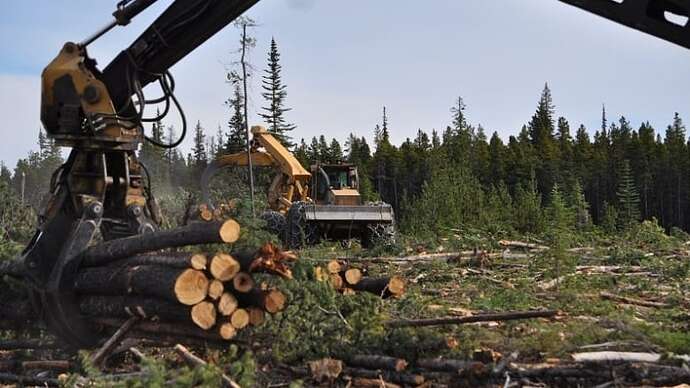A timber operation in the Cariboo. B.C. passed amendments to modernize forestry legislation last year, including laying the groundwork for a new system of 10-year forest landscape plans to be developed in partnership with First Nations. (Hytest Timber)
British Columbia’s forestry sector has “never been under greater stress,” Premier David Eby says.
There is an “inescapable recognition that change is needed to ensure our forest industry is sustainable,” he writes in his mandate letter for the new forests minister, Bruce Ralston.
Eby’s letter to Minister of Water, Land and Resource Stewardship Nathan Cullen, meanwhile, says “short-term thinking” in land management has led to “exhausted forests.”
The new premier’s pointed language to his ministers highlights how B.C.'s forestry sector is in the throes of change, as the province embarks on plans to “modernize” how forests are managed amid ecological concerns, fluctuating lumber prices and dwindling supply of trees for harvesting.
Bob Simpson, who served as mayor of Quesnel, B.C., a longtime forestry community, between 2014 and 2022, said the sector is “stuck in a time warp,” carrying on with clear-cutting and exporting raw logs and lumber at a pace ecosystems and the timber supply cannot maintain.
Climate change, meanwhile, “robs us of time” to overhaul how forests are managed to protect their health and biodiversity while also transforming the industry, he said.
"We just don’t have the time to dither anymore. We have to be much more deliberate, we have to be much more courageous and we have to be much more collaborative than we’ve ever been,’’ said Simpson, who served from 2005 to 2013 as the NDP and then independent member of the B.C. legislature for Cariboo North.
